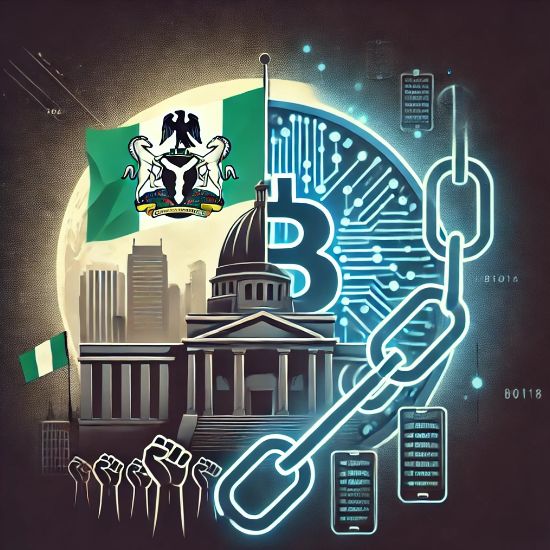Key Insights:
- The Nigerian government’s claim of freezing protest-related funds faces blockchain data discrepancies.
- Irregularities in reported wallet balances and ongoing transactions complicate fund freeze efforts.
- Regulatory challenges highlight the difficulties in monitoring and controlling decentralized crypto activities.

Recent attempts by the Nigerian government to freeze funds associated with the EndBadGovernance protests have encountered significant hurdles. The government claims to have blocked 83 billion Nigerian naira ($52 million) in both cryptocurrencies and fiat currencies. However, recent blockchain data suggests that some crypto wallets tied to the protest group remain active.
Irregularities in Reported Wallet Balances
According to the government, 78 billion naira ($50 million) was frozen within the crypto sector, with specific details provided about four wallets holding approximately 59 billion naira ($38 million). Nonetheless, an investigation into these wallets has uncovered discrepancies.
For example, one wallet was reported to have 1.5 million naira ($967) but actually contained only 270,796 naira ($172). Another wallet initially believed to hold 698 million naira ($443,512), was found to have only 367 million naira ($233,574).
Ongoing Transactions Raise Questions
Despite the reported freeze, transactional activity persists. Notably, 78 million naira ($50,000) has been transferred into an unknown wallet, complicating the situation further. Although the identities of these wallet owners are not publicly known, it is speculated that exchanges like KuCoin and MEXC may have provided information to authorities.
The government has a problem with controlling cryptocurrencies because transactions are still being made even though there are some inconsistencies in the amounts stored in wallets. This is hard for them because, unlike other financial systems, blockchain technology is decentralized and therefore anonymous which makes it difficult to track or regulate any transaction.
Challenges in Enforcing Regulations
While Nigeria’s Economic and Financial Crimes Commission (EFCC) investigates potential money laundering and terrorism financing, its effectiveness is questioned. A crypto forensic expert has noted that exchanges may be asked to cooperate with government inquiries but are not always compelled to comply.
Exchanges often require substantial legal justification to assist and may reject requests they deem unsubstantiated. This reflects the broader challenges of applying existing regulatory frameworks to the rapidly evolving digital finance sector.
Implications for Nigeria’s Crypto Sector
The ongoing activity in the supposedly frozen accounts coincides with growing calls within Nigeria’s crypto community for clearer regulatory guidelines. The #EndBadGovernanceInNigeria protests initially focused on broader governance issues, have also underscored the need for more precise regulations for the crypto sector. Protesters advocate for rules that would benefit both the crypto industry and Nigeria’s financial system.
New Developments in Lagos State
Lagos State has announced plans to tokenize real estate as part of its Eko Revenue Plus Summit in related news. To make property transactions easier and more transparent so that internally generated revenue (IGR) can be increased, this move was made. Digital tokens are created by converting physical assets into them, which then can be traded on blockchain platforms for facilitating simple investment opportunities – this is what real estate tokenization does.
Personal Note From MEXC Team
Check out our MEXC trading page and find out what we have to offer! There are also a ton of interesting articles to get you up to speed with the crypto world. Lastly, join our MEXC Creators project and share your opinion about everything crypto! Happy trading! Learn about interoperability now!
Join MEXC and Get up to $10,000 Bonus!
Sign Up


